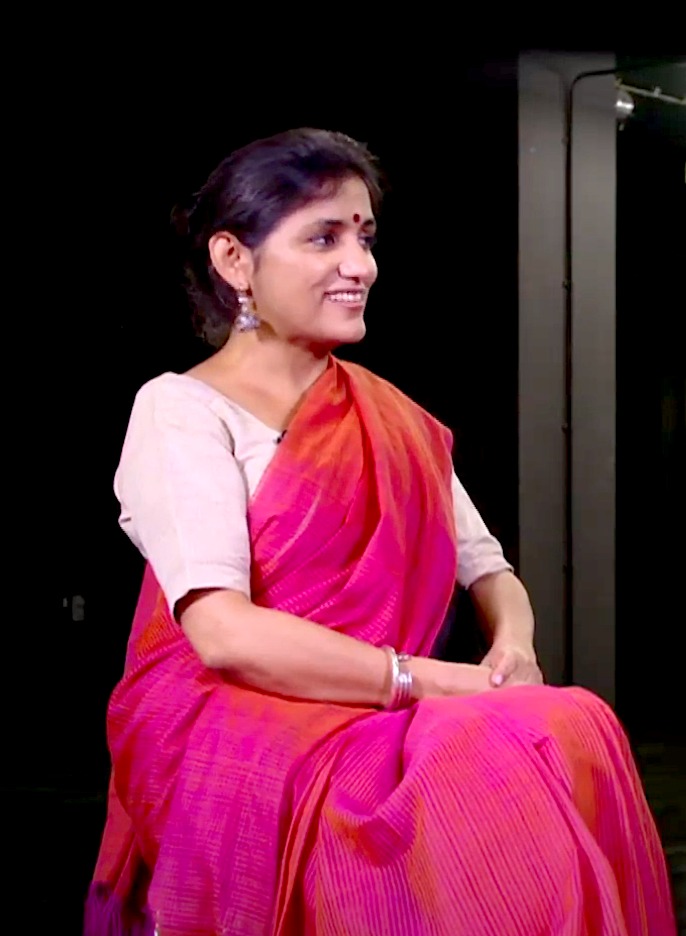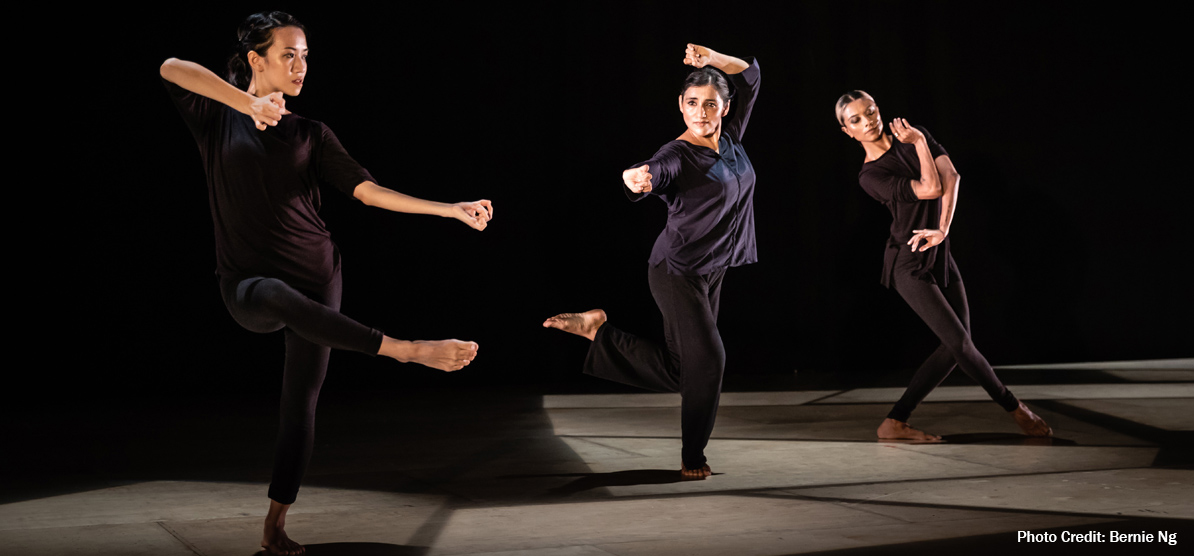Singapore dance theatre company Chowk Productions brings to Kalaa Utsavam 2021 ‘These Brief Encounters’, a contemporary dance performance based on the novel ‘The Plague’ by Albert Camus, exploring how the 1947 novel is relevant in a post-pandemic world.
Founded in 2014 by Raka Maitra, the dance company delves deep into Indian movement traditions to develop a contemporary dance vocabulary. This year, they are teaming up with Siong Leng Musical Association this year for their show.
Chowk’s earlier Kalaa Utsavam works include 'The Blind Age' (2014), 'from: The Platform' (2017) and dance film 'Pallavi through Abstractions' (2020).
As a dancer, Raka didn’t want to choose between classical dance or contemporary. So she decided to develop her own discipline, one that moves and speaks without borders.
“Through training rooted in classical Odissi and artistic productions with a process-oriented, research-based approach, our mission is to develop, from our Singapore base, an Asian contemporary dance expression that dissolves the dichotomy between tradition and modernity,” she said.
Connected to India caught up with Raka about the upcoming show she choreographed, the return to Kalaa Utsavam and the challenges they faced over the past 18 months. Here are excerpts from the interview.
Connected to India (C to I): How would you describe ‘These Brief Encounters’? What led you to choose Albert Camus’ ‘The Plague’?
Raka Maitra: I had started reading 'The Plague' years ago. I remember thinking that we would never experience such terrifying times, and I also remember not finishing the book because it was too dark. When Covid hit us, I went back to reading it and I realised some things never change. In the first chapter, Camus talks about a town where the chief aim in life is "doing business" and the weekends are reserved for "pastimes", and this is all disrupted with the appearance of dead rats. The parallels between the book published in 1947 and what's happening now is eerie. Everything we are doing now is a response to the times we are in, so in a sense The Plague was an obvious choice.
C to I: What were some of the challenges you faced in putting together such a complex performance?
Raka Maitra: I was looking to collaborate and put together elements that wouldn't usually come together. I was looking at something grand and traditional to be paired with a very abstract sensibility, which is why I decided to collaborate with Siong Leng Musical Association.
C to I: How does this piece showcase your love of both classical and contemporary dance?
Raka Maitra: I love stories and I love movement; the classical leads to the contemporary and I don't think one can exist without the other. The dancers in this work and in all my other works are trained in Odissi and our warm up for every rehearsal is a traditional Odissi piece. They don't necessarily use the classical on stage, but you can see it in their body and their gaze.
C to I: As a dance company of 10 years, what is excellent artistry, in your opinion?
Raka Maitra: Excellent artistry can have many meanings. It could be excellent workmanship and craft, but sometimes in the performing arts, when we focus too much on technique, the spontaneity of movement and the joy of performance can get lost – sometimes even a very technically good dancer fails to move you, so I guess it's a matter of perspective. For me, excellent artistry in the performing arts is something that moves me, something that will stay with me and provoke me to think, and beauty and images are very important for me.
C to I: What factors influenced or determined your creation process in this commissioned work?
Raka Maitra: Just before the pandemic, I had started working on ancient Tamil love poems translated by AK Ramanujan. When the pandemic hit us, I was still working on the poems and decided to weave in 'The Plague', but gradually the pandemic changed our lives completely and I had to drop the poems. I started just going back to Camus' work and comparing it to human behaviour now – so many things which we could hide have come out in the open; the pandemic hasn't really changed us, it's just exposed who we are – and I think that has been an important part of the process, watching people and news and people's response to restrictions.
C to I: What are you looking forward to most about performing live again?
Raka Maitra: I have tried to make the work beautiful, strange, bizarre like the times we are in now. It has elements that I wouldn't usually work with, like elaborate sets by visual designer Muhammad Izdi in a small space, live Nanyin music by Siong Leng Musical Association, and the vocabulary, though drawn from Odissi, is very different from what I have done before. I am keen to see how the audience responds.
Click here for a detailed lineup of events this year at Kalaa Utsavam.




